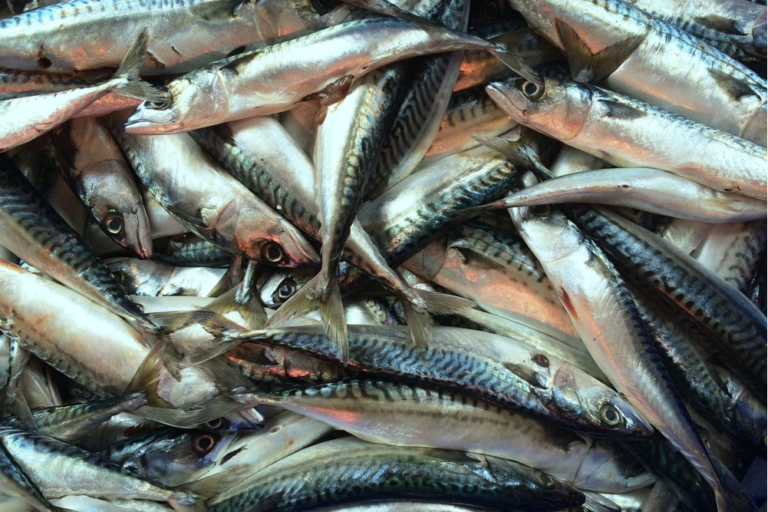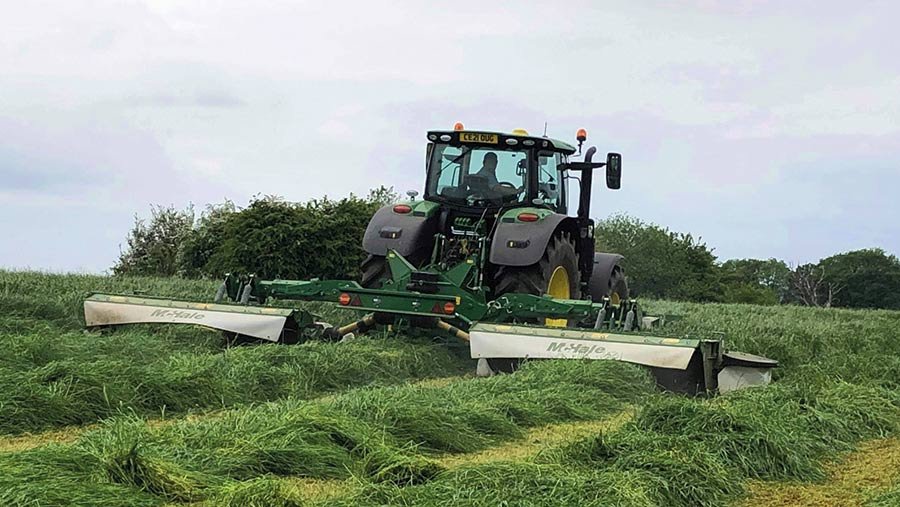- The warming of the world’s oceans by climate change is pushing fish away from their current habitats and toward Earth’s poles.
- By 2030, scientists predict a quarter of the global shared fish stocks could move, a new study says, with about three-quarters of countries seeing at least one fish species move out of their exclusive economic zone.
- Countries in the tropics, especially those in the Caribbean, Latin America, Oceania and South Asia, could experience the shifts earlier; and while some countries stand to benefit at the expense of others, these shared fish stock movements could upend current fisheries agreements, leading to disputes.
- To avert disputes, countries could renegotiate current catch quotas to factor in the effects of climate change-driven fish movements, the study authors say.
Unlike boundaries on the land, the ocean is contiguous — fish move and transcend international waters as they please, without bothering about jurisdictions. As long as ocean temperatures remain generally stable, the fish remain in their known habitats and all is well. But as climate change heats up oceans rapidly, fish are on the move, upsetting fishing treaties between nations that stipulate who can catch how much fish in shared waters.
“Many of the fisheries management agreements made to regulate shared stocks were established in past decades, with rules that apply to a world situation that is not the same as today,” Juliano Palacios-Abrantes, a marine biologist at the University of Wisconsin-Madison, said in a press release.
In a recent study, Palacios-Abrantes and his colleagues from Canada, the U.S., U.K. and Switzerland predict that about half of the world’s commercial fish in shared waters will move from their known habitats by the end of the century. Published in the journal Global Change Biology, the study warns of a dramatic change in fish stocks by as early as 2030 that could lead to international disputes in exclusive economic zones, the area within 200 nautical miles (370 kilometers) of a country’s coast where it has exclusive rights for fishing.
By 2030, according to the study, climate change will force 23% of shared fish stocks to move from their historical habitats and migration routes, if nothing is done to halt greenhouse gas emissions. By the end of the century, that number could rise to 45%.
The researchers also found that around three-quarters of EEZs will see at least one of their fish stocks move by 2030. By 2100, 81% of EEZs will face the same fate.
The world’s fish are on the move
More than a decade ago, scientists discovered that climate change was driving the world’s fish toward Earth’s poles, depleting populations in the tropics. Fish species, like every other species, have an optimum condition where they prefer to live.
“If temperatures [get] too warm in the historically preferred habitat range of a fish to thrive, it will move towards habitats [that are] within their preferred temperature,” said Andrea Buchholz, a marine biologist at the Fisheries and Marine Institute in Canada who was not involved in the recent study.
Palacios-Abrantes’s study analyzed the shifting ranges of 633 fish species in shared waters between 2005 and 2014. It then projected how these species’ range may shift as oceans continue to heat up. Finally, the study calculated the changes in catch proportions within each neighboring EEZ for each year between 1951 and 2100.
The projections showed that countries in the tropics, especially those in the Caribbean, Latin America, Oceania and South Asia, will experience the shift earlier than most regions.
“One bad thing about it is that the fish leaving the tropics are not being replaced by anything,” says Daniel Pauly, a co-author of the groundbreaking 2009 study that first reported the poleward movement of fish. Many coastal communities in tropical countries depend on locally caught fish as a vital source of protein.
While fish stocks along the coasts of North and South America, and the Atlantic coast of Southern Africa, are expected to move poleward, those around the coasts of Pacific Central America and West Africa could shift toward the equator. By 2033, the study predicts that temperate countries, too, will feel the heat.
These movements will affect fishing industry revenues, the study says. By 2030, the EEZs of places like Mexico, Ecuador, Norway, Madagascar, the Falkland Islands (Islas Malvinas), the Kerguelen Islands, and the Pitcairn Islands could lose more than 50% of their top five most valuable shared fish stocks. This would hurt fishing revenues, and in poorer countries, potentially threaten food security.
Some countries stand to benefit at the expense of others. In the near future, Guatemala will likely gain from fish moving from Mexico’s waters in the Pacific; Mozambique will see an influx of fish from Madagascar’s waters; and Russia is likely to see gains from both Norway and Japan in the Barents Sea, according to the study.
Moving fish, rising conflicts
This isn’t just a future issue. Shifting fish stocks are already happening, providing a glimpse into the kind of conflicts we might see in the future.
“One prominent example would be the American lobster fisheries on the U.S. and Canadian East Coast,” Buchholz said. “Lobster catches in the more southern, warmer southern New England [waters] have experienced declines, [while] lobster catches in the Canadian Maritimes are on a record high.”

This boom led to the 2020 conflicts between Mi’kmaq and non-Indigenous lobster fishers in Nova Scotia. The long-running “mackerel war” in Europe, between Denmark (specifically the Faroe Islands), Norway and Iceland, is another example of how shifting fisheries can lead to international disputes.
Negotiations to resolve such conflicts can take a long time, especially when the stakes are high, and countries can miss the catch when it’s there.
“The time [taken] negotiating the diplomacy is just not adapted to these changes,” Pauly said.
The findings from Palacios-Abrantes’s study could act as an early warning system showing where disputes are possible and when, allowing countries to use the data to hammer out changes to existing agreements. The study also provides reference points around which countries can renegotiate current catch quotas to factor in the effects of climate change.
But tackling climate change should be our first step toward sustainable fisheries, a U.N. Sustainable Development Goal, scientists say.
“To have a future [for] our ocean’s fish and the people who depend on them, fisheries and marine ecosystems need to be managed with rapid climate change in mind on both large and small scales,” Buchholz said.
Despite repeated pledges and promises, especially by wealthy countries, global greenhouse gas emissions remain flat, threatening the goal of limiting global warming to less than 1.5° Celsius (2.7° Fahrenheit) by 2100.
Pauly said he isn’t too optimistic about any meaningful actions being taken on climate change.
“People will always speak from the two sides of their mouth, and say we are trying to do this and that,” he said. “But, if emissions continue, then you are condemning people to losing everything.”
Banner image: A fishing boat in Indonesia, one of the world’s leading fishing nations. As waters in the tropics warm due to climate change, fish species are predicted to move toward Earth’s poles, depriving people of food and livelihood in tropical countries. Image by Rhett A. Butler/Mongabay.
Citations:
Palacios‐Abrantes, J., Frölicher, T. L., Reygondeau, G., Sumaila, U. R., Tagliabue, A., Wabnitz, C. C. C., & Cheung, W. W. L. (2022). Timing and magnitude of climate‐driven range shifts in transboundary fish stocks challenge their management. Global Change Biology, 28(7), 2312-2326. doi:10.1111/gcb.16058
Cheung, W. W. L., Lam, V. W. Y., Sarmiento, J. L., Kearney, K., Watson, R., Zeller, D., & Pauly, D. (2010). Large-scale redistribution of maximum fisheries catch potential in the global ocean under climate change. Global Change Biology, 16(1), 24-35. doi:10.1111/j.1365-2486.2009.01995.x












